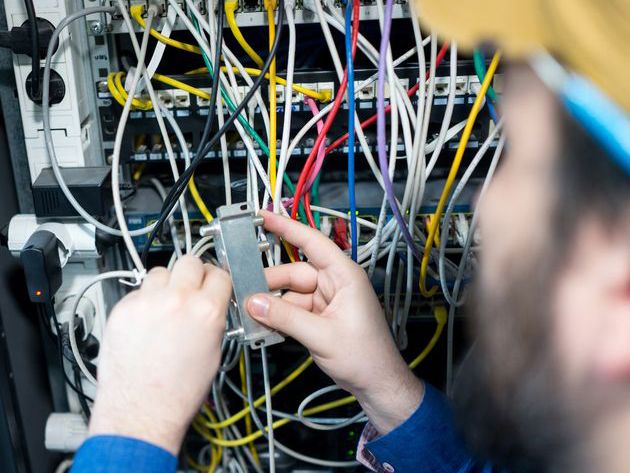The widespread use of optical fiber will not spell the end of digital infrastructure professions. According to a study by Katalyse, the sector should create 33,000 jobs by 2030, representing growth of 5% per year. The maintenance of these fiber networks, the decommissioning of the copper network or the deployment of industrial 5G should make up for the mechanical drop in the number of fiber connections.
The sector is mainly counting on new growth drivers such as the explosion in the number of data centers in France and particularly in Ile-de-France and the Aix-Marseille region. Jobs in these data centers are expected to almost double from 11,500 to 20,000 in 2030 and 70% concern technician profiles. A boon for the approximately 15,000 fitters expected to retrain in the coming years.
“These are field technicians who have sufficient expertise in network and telecom technologies to carry out mixing in data centers », Estimates Philippe Le Grand, president of InfraNum, the professional federation of “infra” professions. Another avenue: the development of smart cities and connected territories. The technician will install IoT sensors and other alarms on connected equipment and buildings to ensure their security or control energy consumption.
Attractiveness deficit
Everything would therefore be fine if the sector did not suffer from a lack of attractiveness, particularly among middle and high school students. “ Only 61% of the places available in my training center are occupieddeplores Pascal Goin, president of the InfraNum employment-training commission and director of the Montereau Digital Campus (Seine-et-Marne). However, they are funded and systematically lead to employment. » The situation would be comparable in other training centers.

For Philippe Le Grand, negative preconceptions are coupled with a lack of professional knowledge of infrastructure. “ The general public only perceives digital professions through the prism of uses “. To expand its employment pool, the sector intends to promote diversity by attracting women – “ our jobs are not gendered » – and by promoting the inclusion of people with disabilities.
According to Philippe Le Grand, infra professions can participate in the quest for meaning, dear to generations Y and Z. “IIntegrating our sector means participating in a collective adventure. By deploying the networks of the future or connecting a territory, we participate in the transformation of society. »
The president of InfraNum recognizes, however, that catching up on salaries would make it possible to promote these professions. The economic model of the telecoms market in France with its four operators and the price of subscriptions driven from the bottom, however, leaves, in his eyes, little room for maneuver for subcontractors. “ Technicians in the energy sector are better paid than those in the digital sector », he notes.
Training with low prerequisites
The sector can rely on a network of around fifty training centers deployed as part of the Very High Speed plan. It also plans to call on Pôle emploi and local missions to inform job seekers and people undergoing professional retraining about the opportunities offered by these new professions. “ In the absence of sufficient French labor, we should turn to other solutionss,” warns Philippe Le Grand.
For his part, Pascal Goin points out that the training that his center provides, lasting 3 and 6 months, is easily accessible. The only prerequisites are an appetite for technique, mastery of French and a B license. Other criteria are also prohibitive, such as vertigo or color blindness.
“Professional success lies above all in the motivation of students, he believes. There are, of course, technical skills to acquire but behavioral skills such as communication and self-confidence are essential. » Soft skills take precedence over hard skills.
